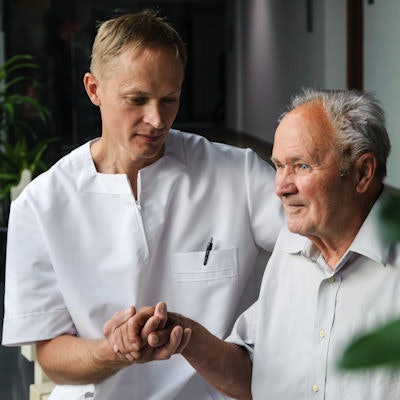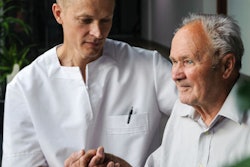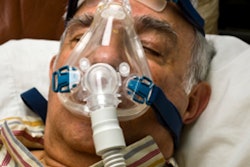
The need for oral healthcare treatment for nursing home residents is well-documented. Researchers wanted to see if a preventive and curative program that included visits from a mobile dental team and education for caregivers would help improve nursing home residents' oral health.
They found that this program improved the oral healthcare for those with natural teeth and those with dentures, as well as reduced the backlog of residents waiting for treatment. Their study was published on June 12 in PLOS One.
"The oral healthcare program Gerodent significantly reduced the treatment backlog and contributed to a considerable proportion of residents being stable in terms of oral health without any incident treatment needs," the authors wrote.
The study was led by Barbara Janssens, MDS, PhD, of the department of community dentistry and oral public health at the Ghent University Dental School in Belgium.
Increasingly complex issues
Poor oral health and a high need for treatment are widespread among nursing home residents, but the combination of an aging population and residents with more natural teeth and complex prosthetic rehabilitations will create the need for increasingly complex oral healthcare, the study authors noted.
“The program provided oral health stability for a considerable part of the sample.”
To meet these needs, mobile and portable dentistry at nursing homes has been suggested as a safe, cost-effective alternative for regular dental clinics. However, there is little information on the implementation of these onsite services.
The researchers studied the introduction of such a program, called Gerodent, in Belgium. The program was introduced in 2010 and includes a preventive protocol at the nursing home level, education for caregivers, and preventive and curative care for residents. The team wanted to see if such a program could impact the treatment backlog in nursing homes and if it improved residents' oral health.
The program consisted of four features:
- Introduction of an oral healthcare team
- Oral health education
- Implementation of oral health guidelines and protocols
- Regular visits of a mobile dental team
The researchers reviewed data from more than 380 residents (mean age of 82.4 at baseline) from 21 nursing homes who received treatments from the mobile dental team between October 2010 and March 2014. They compared oral health and treatment need between baseline and follow-up (mean follow-up of 22 months). The mean number of consultations per resident was 3.61 during the follow-up period.
The researchers found that the percentage of residents with an oral treatment need was reduced from almost 66% to just over 31%. Among residents with natural teeth, there was a significantly lower prevalence of many conditions from baseline to follow-up:
| Change in percentage of nursing home residents with oral treatment needs | ||
| Oral conditions | Baseline | Follow-up |
| Caries rate | 70.5% | 36.5% |
| No. of residual roots | 54.2% | 25.1% |
| Need for fillings | 31.9% | 17.1% |
| Need for extractions | 64.3% | 31.6% |
In the group of residents with partial or full dentures (n = 223), the major treatment backlog at baseline of 85 residents who needed a repair, rebasing, or renewal of their existing dentures was reduced to 20 residents (9.0%) after the follow-up period (p < 0.001).
Overall, at least 204 residents (53.5%) achieved oral health stability during the follow-up period, defined as no new natural teeth with a need for treatment and no need for new prosthetic treatment, the researchers reported. In the group with natural teeth and baseline treatment needs, the results are as follows:
| Oral health status and treatment need of nursing home residents with natural teeth | ||
| Variable | Baseline | Follow-up |
| Patients with 0 natural teeth | 0 | 29 |
| Patients with 1-9 natural teeth | 105 | 112 |
| Patients with 10-20 natural teeth | 107 | 90 |
| Patients with 20 or more natural teeth | 51 | 32 |
| No. of residual roots (mean) | 1.83 | 0.85 |
| Extractions needed (mean) | 2.95 | 1.31 |
Reduced backlog
The authors noted that the study design prevented the use of a control group, as not providing dental treatment to a control group during a mean period of 22 months in a study sample of frail older nursing home residents might have raised ethical considerations. In addition, changes in care dependency were not taken into account, and no plaque measurements were performed, they added.
The authors concluded, however, that while more study was needed, this program was effective in reducing the treatment backlog and improving nursing home residents' oral health.
"In addition to a reduced need for treatment, the program provided oral health stability for a considerable part of the sample," they wrote.



















